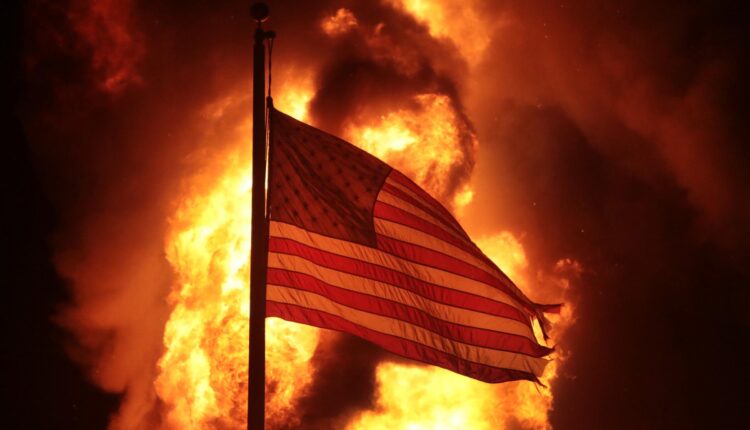
Rotting in America
Something is rotting in America. Along with the great things—the First Amendment and the Grand Canyon come to mind first—there have always been elements fouling the air like guilt never acknowledged, like racism. But the stench has been getting worse now for years. And the really bad thing is that we can’t seem to do anything about it, although most people want to. It’s as if the nation has an impotence problem, and there is no Viagra.
A man in New York state, more boy than man, a racist punk, goes hunting for Black people, easily acquires the tools, even the kind of gun the GI’s used back in the day to cut the Vietnamese to pieces, drives three hours to a Buffalo supermarket brimming with African Americans, and carries out his murderous fantasy, killing ten people, nearly all of them Black.
The nation is horrified. For about ten minutes because there is nothing strange or new in this. More Mexicans were killed in El Paso not that long ago, also by a racist killer with a gun and a manifesto. Before that there was the Pittsburgh synagogue. Too many people and places to name, too many crimes to describe, to decry. OK then, let’s move on leaving our prayers.
The country is like a stalemate in a chess game. Nowhere to go. The country has too many centers of veto power and almost nothing to override them. Too many guns, too few vaccinated people: that’s called freedom, or nothing left to lose.
Deadlock: We are the definition of a “collective action problem.”
A collective action problem or social dilemma is a situation in which all individuals would be better off cooperating but fail to do so because of conflicting interests between individuals that discourage joint action. The collective action problem has been addressed in political philosophy for centuries but was most clearly established in 1965 in Mancur Olson’s The Logic of Collective Action.
The United States is the most powerful country in the world judging by killing capacity and the number of men with the biggest toys—spaceships, planes, yachts. But we can’t get it together to stop a pandemic even with a vaccine or to agree to cease killing each other over nothing. Collective action problems happen everywhere, but they are worse where extreme individualism reigns as a practice and as an ideology.
Attitude matters more than resources. The Ukrainians, invaded by a much larger country with a vast military, thus outnumbered and outgunned, came together and closed ranks to say: Hell no, Putin!
We may not have the best of the best, as many Americans think. Take cheese, beer, and whiskey for example. But we do have a lot of good things. The best scientists who people don’t believe. The best universities no one can afford. The best medicine and the worst medical system.
Biden, a president I like and admire, a pesar de los pesares, despite it all and comparing him to the alternative, often says, in his incurable optimism, that we can do anything we set out to do. Really? Name one big problem where we are winning? Climate change? Economic inequality? Gun deaths? Racism? Species extinction?
OK, we are doing well protecting the Abominable Snowman. Of course, he never existed. Not so great with the manatee, which hangs on ever more precariously, no thanks to us.
None of that is inevitable, of course. Our fate is not in our stars but in ourselves. Abraham Lincoln said that a house divided against itself cannot stand. How about a nation divided in 350,000,000 pieces, parts of which sometimes come together for a good cause like exorcising racism or fighting cancer, and too often for a bad cause, like storming the palace of the Republic or killing a liberal mayor?
I am skeptical of concepts like turning point and tidal change. Right now, our condition is closer to paralysis. Look at the Senate. White panic guarantees paralysis, and because of it, so-called theories are spun. The Great Replacement. Anybody noticed that a century ago a man named Madison Grant wrote The Passing of the Great Race? Bad ideas never die. They turn into bad talking points and worse policies.

